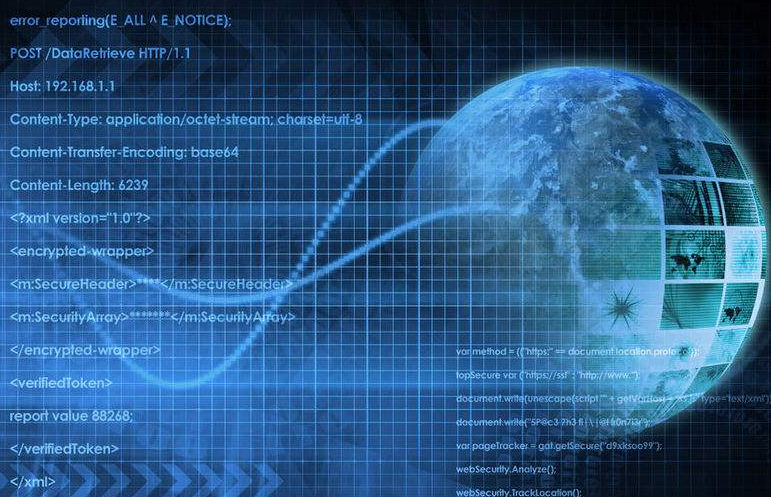The blockchain suddenly burst into red in the financial sector, but don't think too much about the blockchain. In fact, its essence is very simple, that is, an online published book. The blockchain is considered to be accessible to anyone with the ability to set up a server. The relevant demand for blockchains in various industries is becoming more and more urgent, and blockchain technology is gradually coming to the fore. At the same time, some people think that the blockchain is a safer database, so which one is better than the traditional database?
Blockchain can be considered a new type of database. This kind of database can be shared directly, operated by a group of untrusted nodes and without centralized management. It differs from traditional SQL and NoSQL databases by a single entity, even a distributed architecture database behind a firewall.
In some ways, a blockchain is a more secure database, and in some respects it is not. Considering that the current centralized database is still mainstream, it may be a good solution to mix two databases.

Traditional databases require certain access rights to manage, which means you must rely on human management. Once access rights are hacked or administrators do evil, the data is very dangerous, or there is a possibility of being tampered with.
In the real world, banks and financial institutions, as well as large companies, have accumulated some credit through some means. We put money in the bank without worrying about it being stolen. The bank itself needs a group of trusted database administrators, developers, and some secure management processes that rely on these to ensure data security. But these database administrators, developers, and security processes all require a certain amount of time and labor costs.
The blockchain provides a way to replace these additional costs, using digital cryptography and workload proofing and node consensus mechanisms to ensure data security.
Robustness: the advantages of blockchainAnother advantage of blockchain is high fault tolerance because of its inherent redundancy mechanism. Each node is not essential to the entire blockchain network. Nodes communicate with each other, even if some nodes make mistakes for some reason, it will not cause the entire network to crash. Nodes that fail at the same time can always synchronize new transactions correctly after restarting.
There is also redundancy for traditional databases, but the blockchain takes it to a new level. Any node can join the node freely and does not require any configuration by the system. At the same time, any node can freely leave the network without affecting the network.
The redundancy mechanism of traditional databases relies on expensive technical architecture and disaster tolerance measures. Usually there is a primary database, multiple secondary databases, the primary database usually runs on a very expensive high-configuration machine, and then multiple databases are synchronized from the primary database. If the primary database is out of line, the secondary database will be temporarily raised from the database, and the primary database will be restored. After the recovery is successful, you may need to switch to the original primary database. As everyone knows, this technical architecture is very complicated, and it is also difficult to configure. After a problem occurs, it is not very easy to handle it correctly.
But if it's a blockchain, let's say we have ten nodes, they only need to run on ten different ordinary computers. Nodes communicate with each other. If one or two nodes have problems, other nodes will have no effect.
Performance: Centralized Database BenefitsThe blockchain is slower than the traditional database, not because the blockchain technology itself is slow, but because the blockchain itself is new, still in the early stages, performance optimization still has some space, and because the blockchain is apart Run like a traditional database and do extra load:
1. Signature verification. Each blockchain transaction requires signature verification, and these signature verifications are run between each node to prove the legitimacy of the transaction. Traditional databases only do some signature verification in the first communication, and subsequent requests are not needed.
2. Consensus mechanism. Consensus between nodes requires complex communication and the need to handle forks.
3. Redundancy. In a traditional database, the primary node updates the data and then synchronizes the data to the secondary database. Each node of the blockchain needs to save transaction data.
TransparencyAt the same time, transactions on the blockchain are transparent (traditional blockchains, and there are now studies on encrypted blockchains). Because there may be competition between many business structures, they don't want their opponents to see their information. But there are other scenarios that are just the opposite. For example, the crowdfunding platform, the charity platform, just needs the transparency and openness of the transaction.
to sum upSo, whether you use a traditional database or a blockchain, it should be dependent on the scenario. Centralization and robustness? Still private? Still high performance?
Therefore, the blockchain should be better at the following scenarios: 1) company internal audit, 2) source tracking, and 3) light financial system.
Capillary Tube Manometer Pressure Gaug,Capillary Tube Manometer Pressure Gauge,Plastic Pipe Manometer,Capillary Tube
ZHOUSHAN JIAERLING METER CO.,LTD , https://www.zsjrlmeter.com